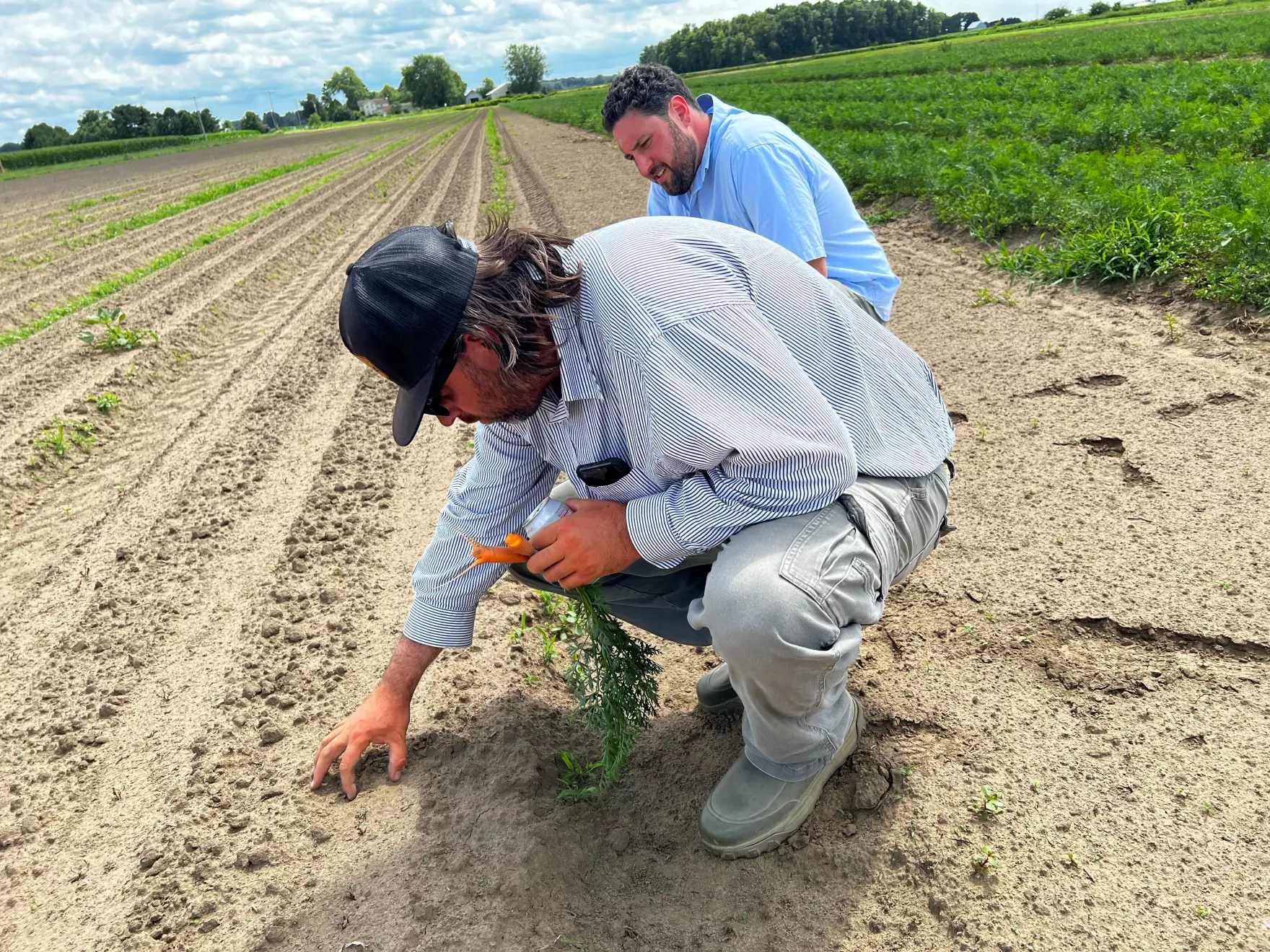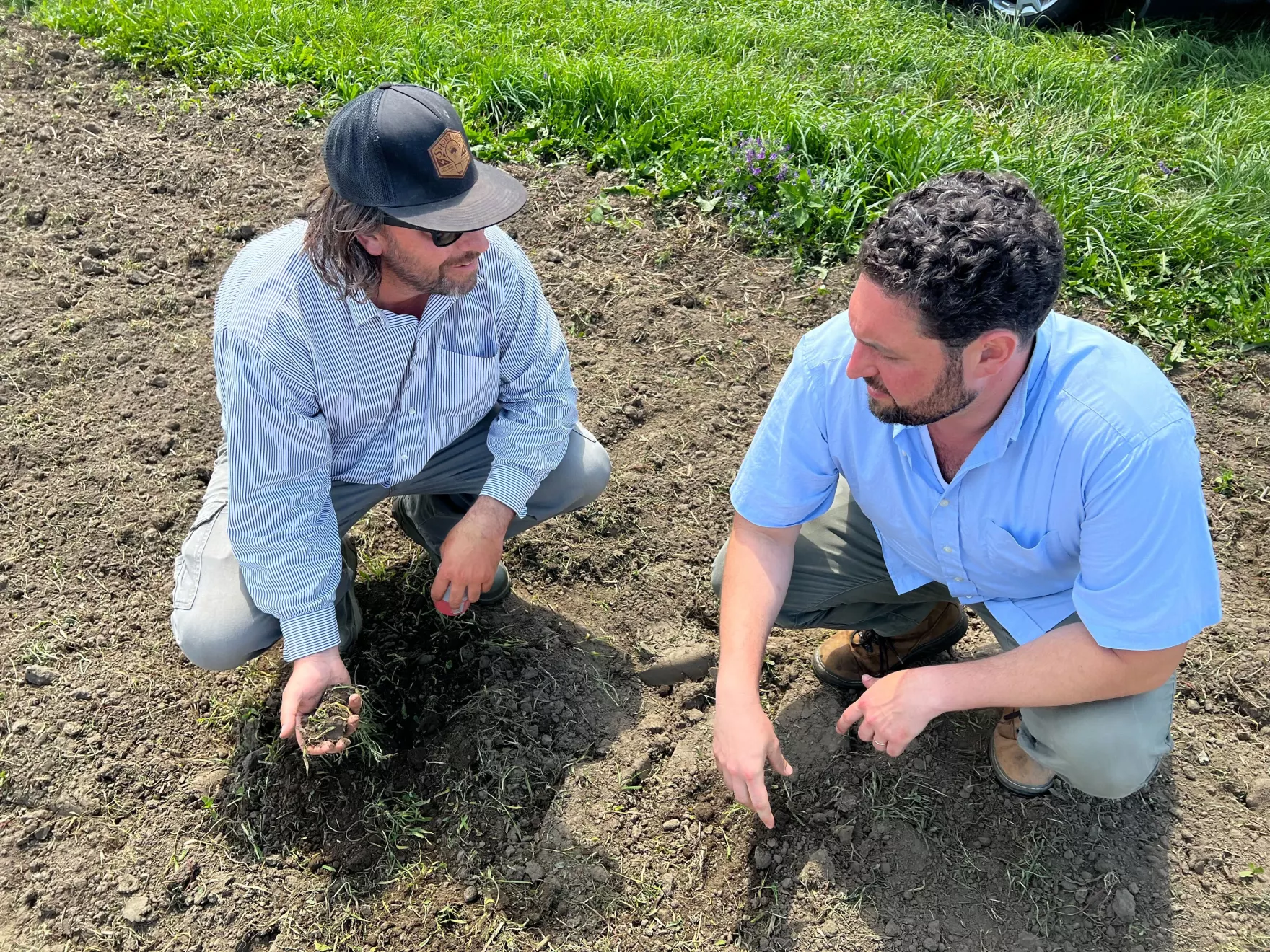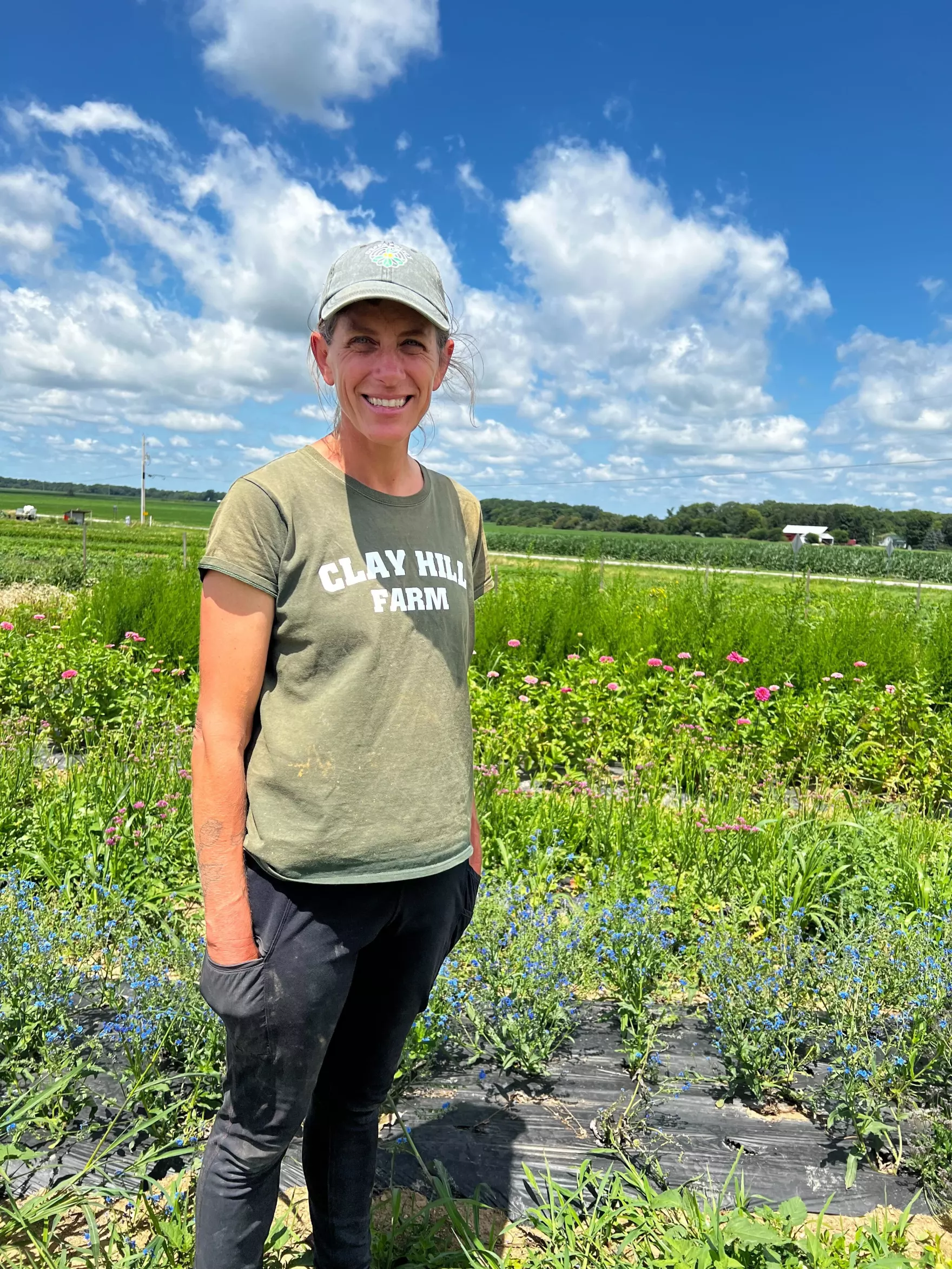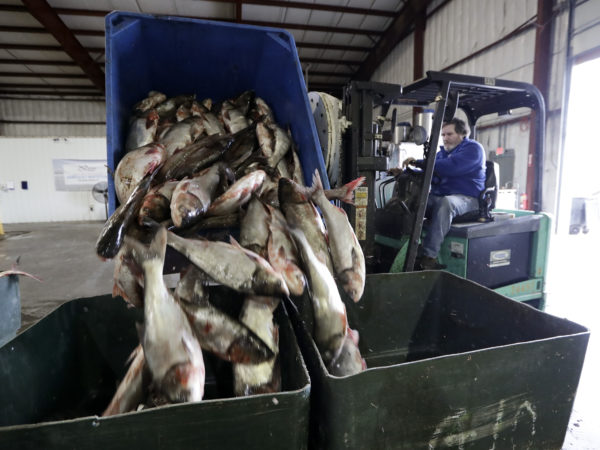
By Zaria Johnson, Ideastream Public Media
This story was originally published by Ideastream.
One in seven Ohioans faces food insecurity, according to Feeding America. This story is part of a “Sound of Us” series in partnership with Lorain County’s Second Harvest Food Bank.
For many of Ohio’s local organic farmers, acquiring land, purchasing equipment and managing crops can be challenging enough, and the low cost of nationally and internationally grown food makes it hard for them to compete for customers.
But over the last seven years, the Oberlin Food Hub has found a way to provide farmers with support by connecting them with one another.
Kurt Bench owns Shared Legacy Farm in Elmore, a rural town southeast of Toledo.
“We just finished harvesting, so he’s getting it ready for the next crop,” he said, watching an employee till a field. “So they’re going to seed cilantro, Polish amaranth and I think some Hakurei turnip today.”
Bench considers himself to be more than just a farmer.
“Jack of all trades,” he said. “I am owner, operator, entrepreneur, innovator, friend, son, father, husband. All the above. Living the dream.”
Feeding more than farmer’s markets
Farming isn’t just a business, either.
“The farm here is like a catalyst for changing lives of people — how they eat, how they sit at home and prepare meals and… really come back to community,” Bench said.
It’s a community that he builds by partnering with the Oberlin Food Hub, a cooperative network where local farmers sell directly to more than 100 organizations in Northeast Ohio and Western Pennsylvania, including 40 grocers, 10 restaurants and 12 food banks that distribute fresh, locally grown food to about 3,700 food pantries.
“We work with the farm to establish, what is your list of products available for pickup by a third-party carrier?” said Dave Sokoll, executive director of the Food Hub. “Then find a customer who says, ‘I would love a pallet of beets every week to turn into juice,’ and then we orchestrate the pickup and the sale and handle the administrative piece.”
That helps small-scale farmers because it establishes more predictable demand than at the farmer’s markets where they typically sell.

Adam Welly (left) and Dave Sokoll said farms like Wayward Seed Farm in Fremont benefit from Oberlin Food Hub’s distribution business, which connects small farms to customers. (Zaria Johnson/Ideastream Public Media)
“If I just go raise stuff for the farmer’s market, sometimes it may be a rainy day and all my customers don’t come to that market and I come home with perishable food,” Bench explained.
Selling to the Oberlin Food Hub helps reduce food waste while making it easier to predict customers’ needs.
“I can plan better for that. I know I need this many bunches of carrots or this many pounds of tomatoes, and I know that that pack will not get wasted,” Bench said. “It will not come home on a truck after a farmer’s market and get thrown out to the pigs, or get repurposed for something else, right? It has got a home every week.”
A network for farmers
The Oberlin Food Hub has an additional mission, Sokoll said.
“We run our distribution business to help small producers get their food to market,” he said. “And then maybe just as important, is about connecting existing players in the food system so that they can work better together,” Sokoll said.
Farmers involved with the food hub will reach out to each other for help and advice. That’s what happened with Kristy Buskirk, who owns Clay Hill Farm in Tiffin with her husband, Aaron.
“I ran into trouble with lettuce,” she said. “We just could not wash it fast enough and cool it.”
So she reached out to Adam Welly at nearby Wayward Seed Farm in Fremont.

Kristy Buskirk said Oberlin Food Hub has created a network for small farmers to connect with each other for help and advice. (Zaria Johnson/Ideastream Public Media)
“I called Adam, and I was able to drive it over there and have his crew really help us with that step,” Buskirk said. “That maybe would have been very detrimental if I didn’t have that support.”
At 180 acres, with a spread of buildings set way back from the road along a gravel drive, Wayward Seed Farm is large enough to support farmers like Buskirk. It has a packaging warehouse and a cooler room to store produce during the offseason.
“We can take a farm like Kristy’s, that’s very small, bring that food here and put it on a semi-truck, even if they only have two pallets,” Welly said, rolling open a giant door to a room of powered fans that keep pallets of onions and other crops fresh. Welly often shares the space with farmers who need help with storing, packaging and shipping their produce.
“So essentially, our network is kind of scale-neutral,” he said.
That flexibility in scale is how the food hub was able to more than double the contracts with farms owned by women and people of color. Revenues from those contracts have amounted to hundreds of thousands of dollars per year.
“You can’t make people buy more sustainable food,” Welly said. “We have to grow more, and we have to find a diverse range of clients that we work with, and I think that’s how we’ll grow our market.”
Overall, he added, it’s all about bringing more nutritious, organic foods to Ohioans.
Catch more news at Great Lakes Now:
A cleaner Cuyahoga River faces a growing threat from stormwater runoff
Campbell Soup pollution lawsuits raise concerns about additional Northeast Ohio phosphorus sources
Featured image: Adam Welly (front), owner of Wayward Seed Farm in Fremont, is able to support other small farmers with his farm’s packaging warehouse and cooler room to store produce during the offseason. (Zaria Johnson/Ideastream Public Media)




